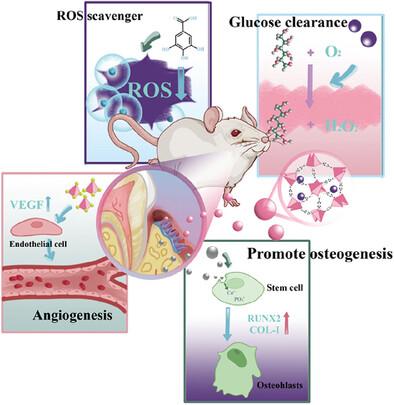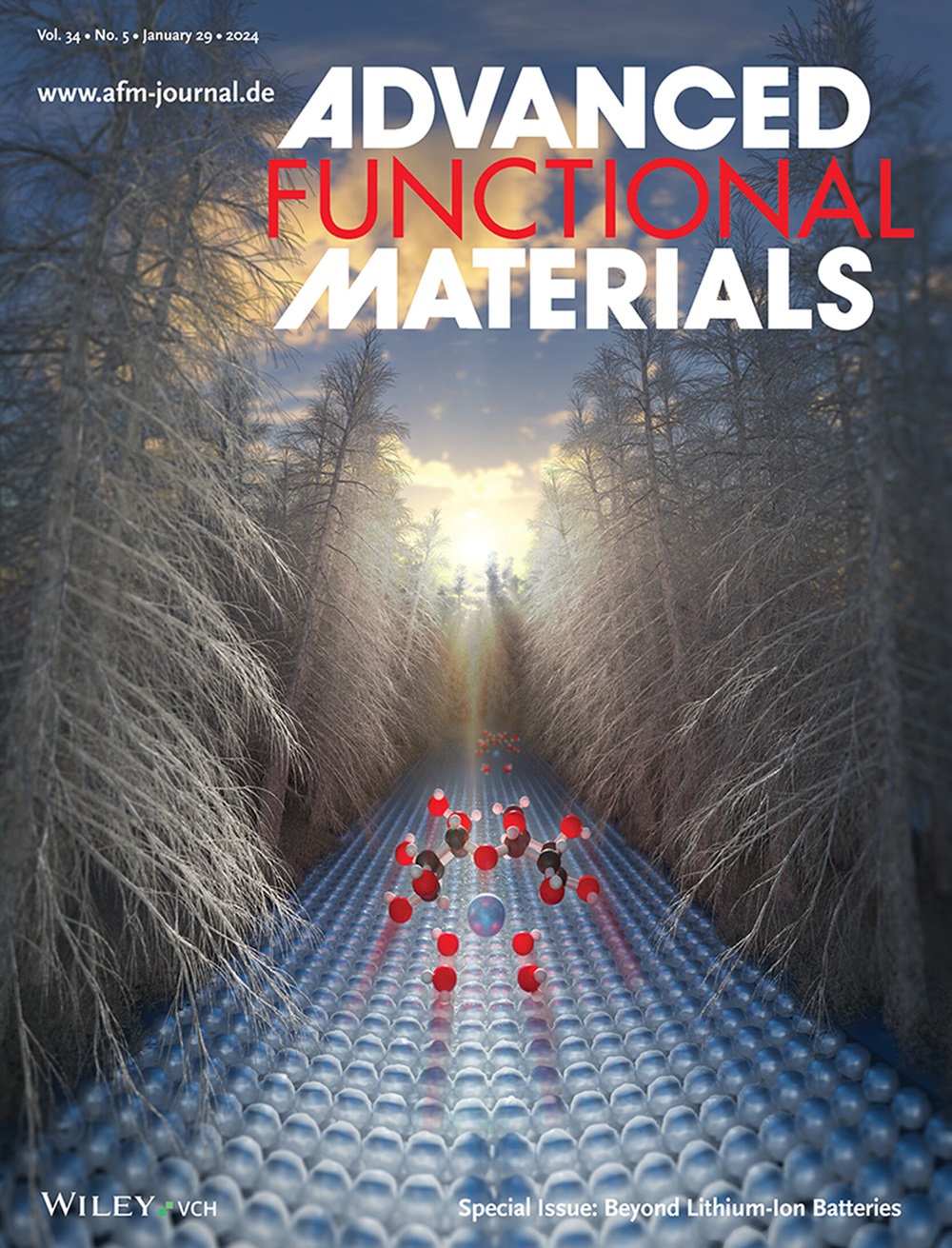Microenvironment-Regulated Dual-Layer Microneedle Patch for Promoting Periodontal Soft and Hard Tissue Regeneration in Diabetic Periodontitis
IF 18.5
1区 材料科学
Q1 CHEMISTRY, MULTIDISCIPLINARY
引用次数: 0
Abstract
Chronic periodontitis in individuals with diabetes can exacerbate the destruction of local periodontal soft tissues and accelerate the resorption of hard tissue. Currently, effective strategies to simultaneously restore both soft and hard periodontal tissues remain insufficient. To address this challenge, a multifunctional dual-layer microneedles (d-MNs) design is proposed to regenerate both periodontal soft and hard tissues in diabetic patients. The d-MNs substrate is composed of gelatin methacryloyl (GelMA) infused with nano-hydroxyapatite (nHA), which facilitates the differentiation of osteogenic cells into osteoblasts, thereby promoting alveolar bone regeneration. The tips of the d-MNs, on the other hand, are primarily made of hyaluronic acid (HA) combined with a magnesium-based metal-organic framework (Mg-MOF) loaded with glucose oxidase (GOX). This composition creates a hypoglycemic, angiogenic, and anti-inflammatory microenvironment, which supports soft tissue repair. When implanted at the site of periodontitis, the synergistic interaction between the d-MNs substrate and tips effectively promotes the regeneration of both soft and hard tissues, as demonstrated in diabetic rat models of periodontitis. These innovative d-MNs have the potential to revolutionize traditional approaches to treating diabetic periodontitis and can see broad application in dental clinics.

求助全文
约1分钟内获得全文
求助全文
来源期刊

Advanced Functional Materials
工程技术-材料科学:综合
CiteScore
29.50
自引率
4.20%
发文量
2086
审稿时长
2.1 months
期刊介绍:
Firmly established as a top-tier materials science journal, Advanced Functional Materials reports breakthrough research in all aspects of materials science, including nanotechnology, chemistry, physics, and biology every week.
Advanced Functional Materials is known for its rapid and fair peer review, quality content, and high impact, making it the first choice of the international materials science community.
 求助内容:
求助内容: 应助结果提醒方式:
应助结果提醒方式:


